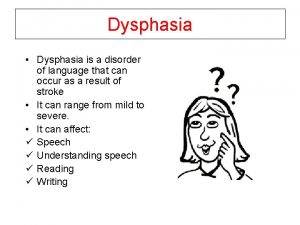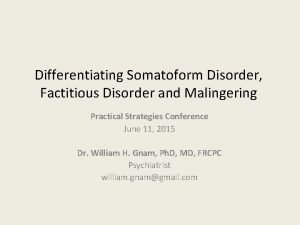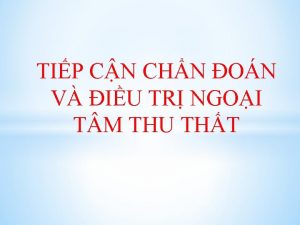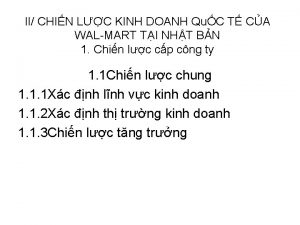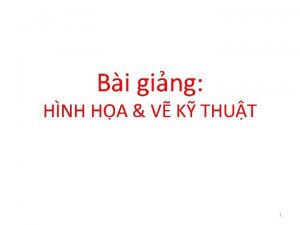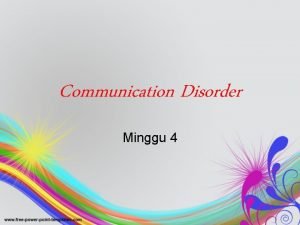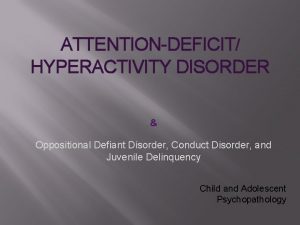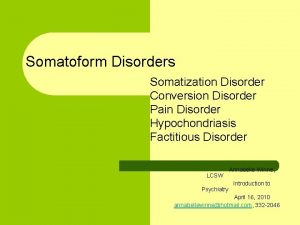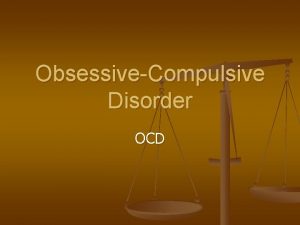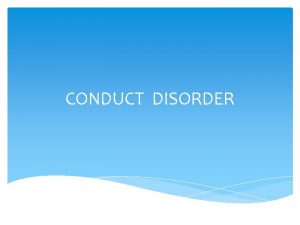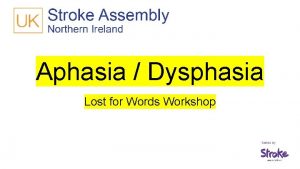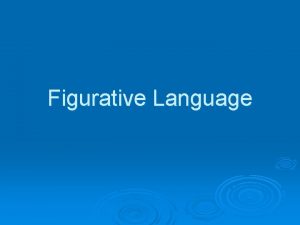Dysphasia Dysphasia is a disorder of language that









- Slides: 9

Dysphasia • Dysphasia is a disorder of language that can occur as a result of stroke • It can range from mild to severe. • It can affect: ü Speech ü Understanding speech ü Reading ü Writing

Fluent Dysphasia • • Normal speed and intonation Nonsense words/jargon Poor self-monitoring and awareness of errors Understanding often poor

“Cookie Theft” Picture

Example of fluent speech (Based on description of cookie theft picture. ) “Well this is……. mother is away here working her work out o’here to get her better, but when she’s looking, the two boys looking in the other part. ”

Non-fluent dysphasia • • Slow and hesitant Articulation errors mostly uses nouns Understanding is usually intact

Example of non-fluent speech (Based on a description of the cookie theft picture) “Cookie jar…fall over…. chair…water…empty”

Fluent/non-fluent dysphasia • In reality, it is not always that clear cut. People do not always fall neatly into one type of dysphasia. • People can change from one to the other in the early days after a stroke. • Sometimes people have some of the symptoms of one type and some of the other eg. good comprehension but jargon words.

Swearing • People often swear when they have dysphasia. • This is because there is a lack of control in the brain over what is said. • Don’t be offended! They can’t help it.

Singing and automatic speech • People with dysphasia can often sing songs or recite days of week or other learned utterances. • These are stored in the person’s memory in a different part of the brain than the language centre for making up sentences.
